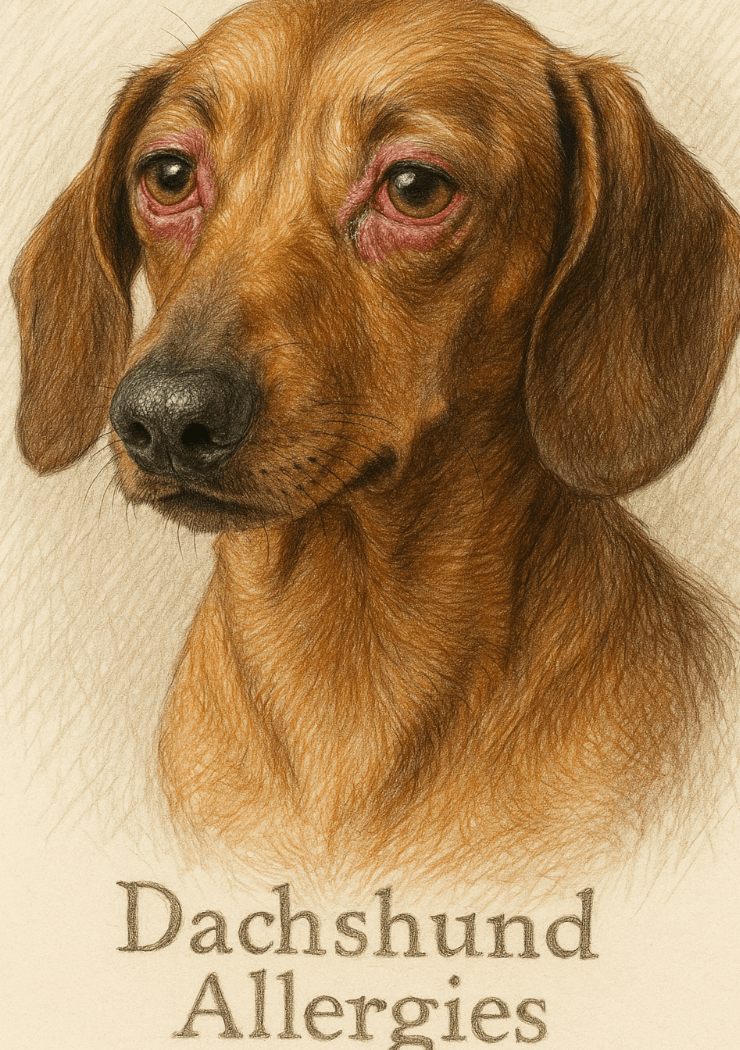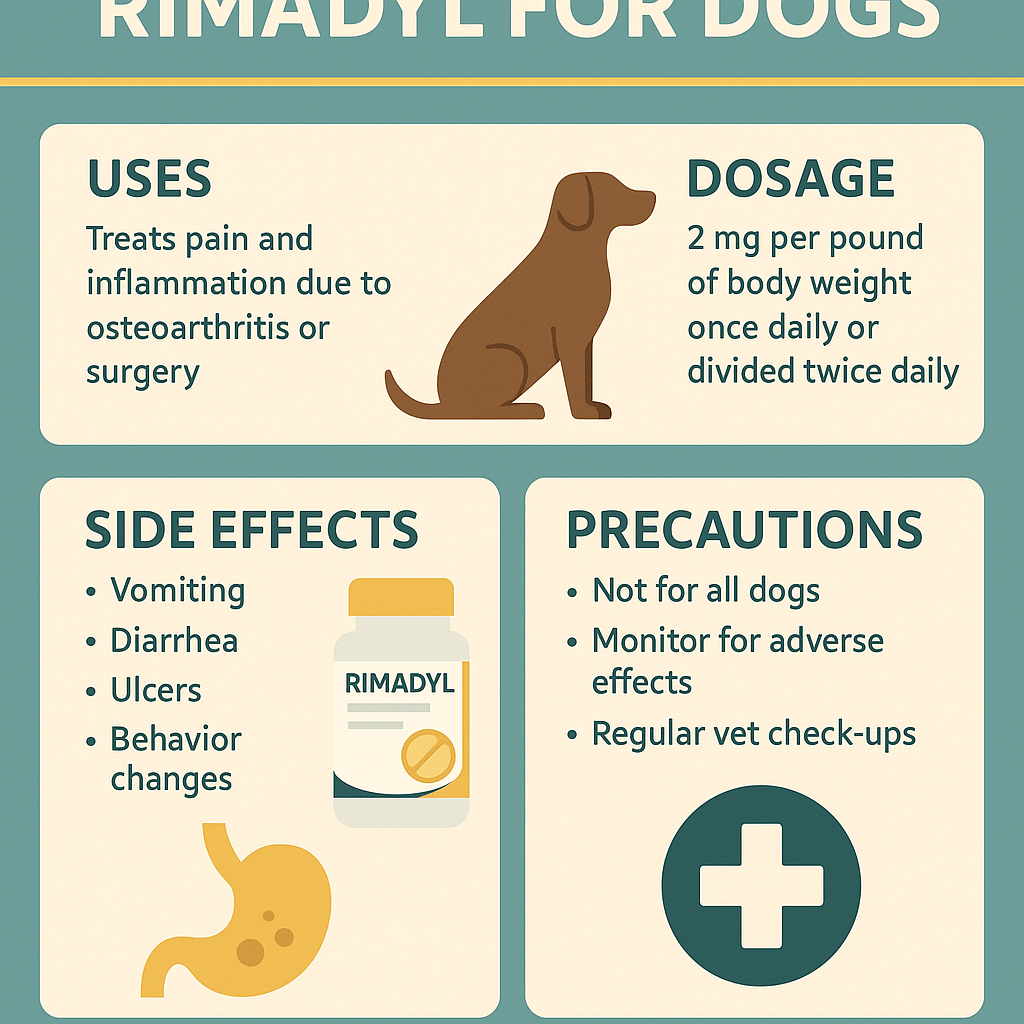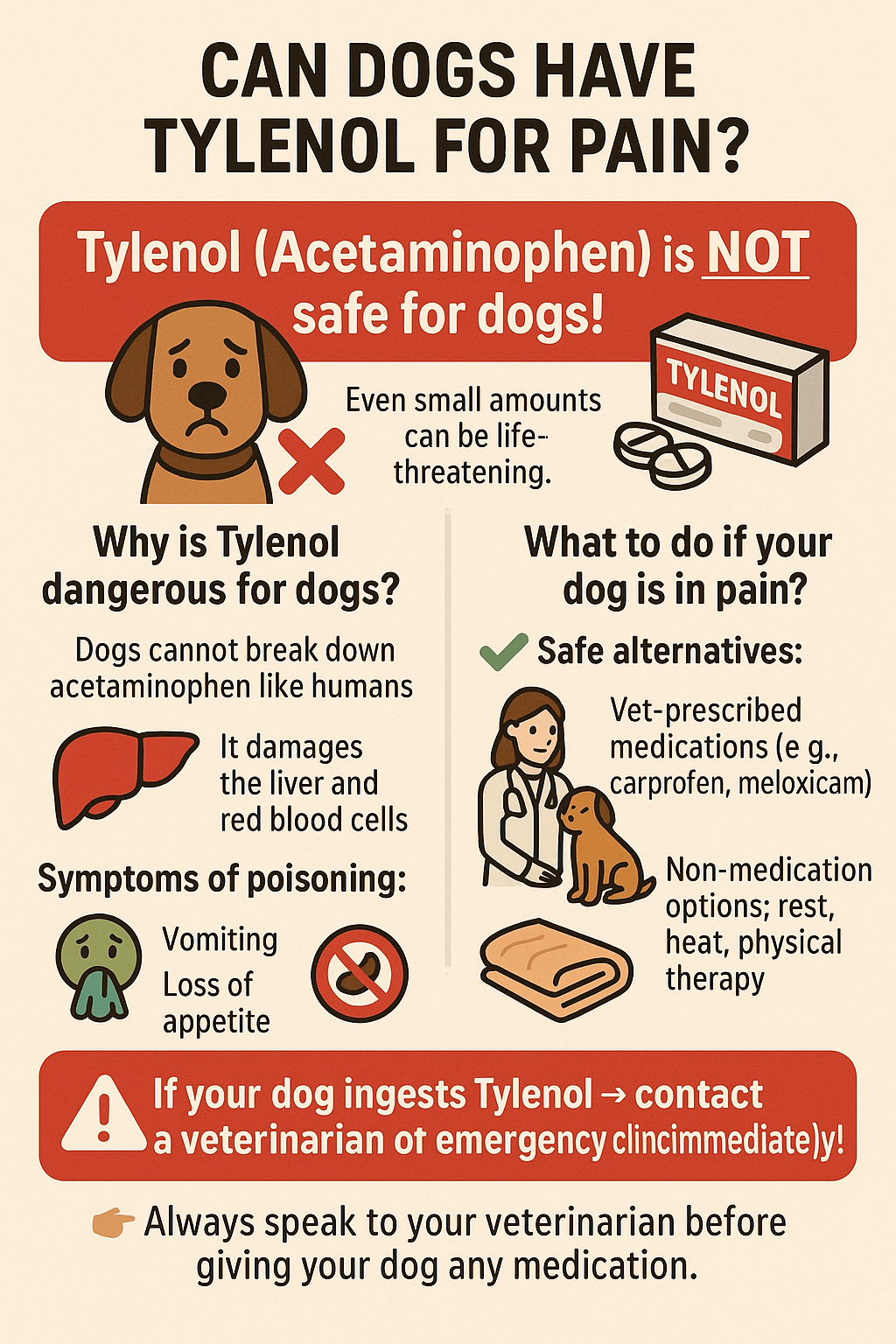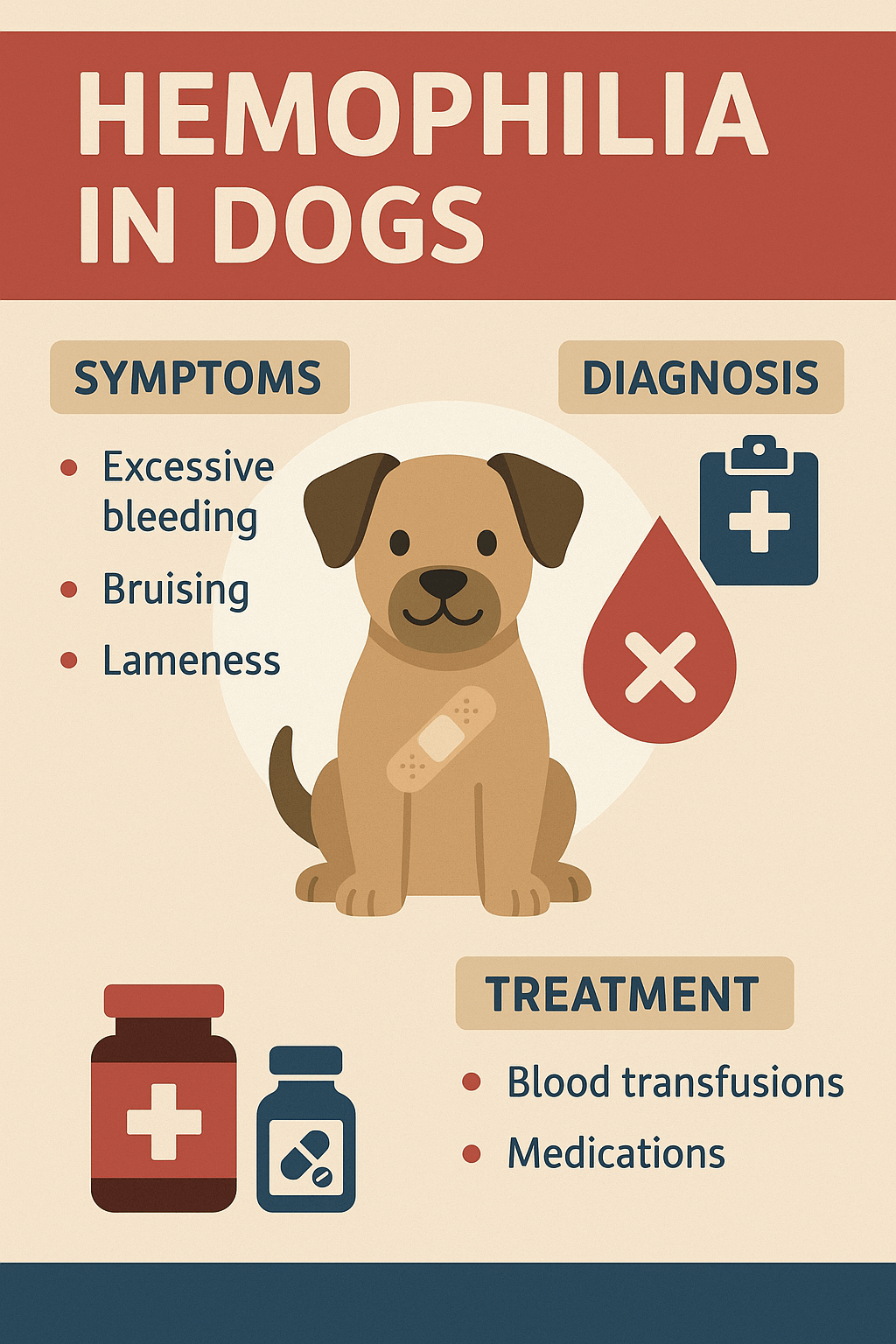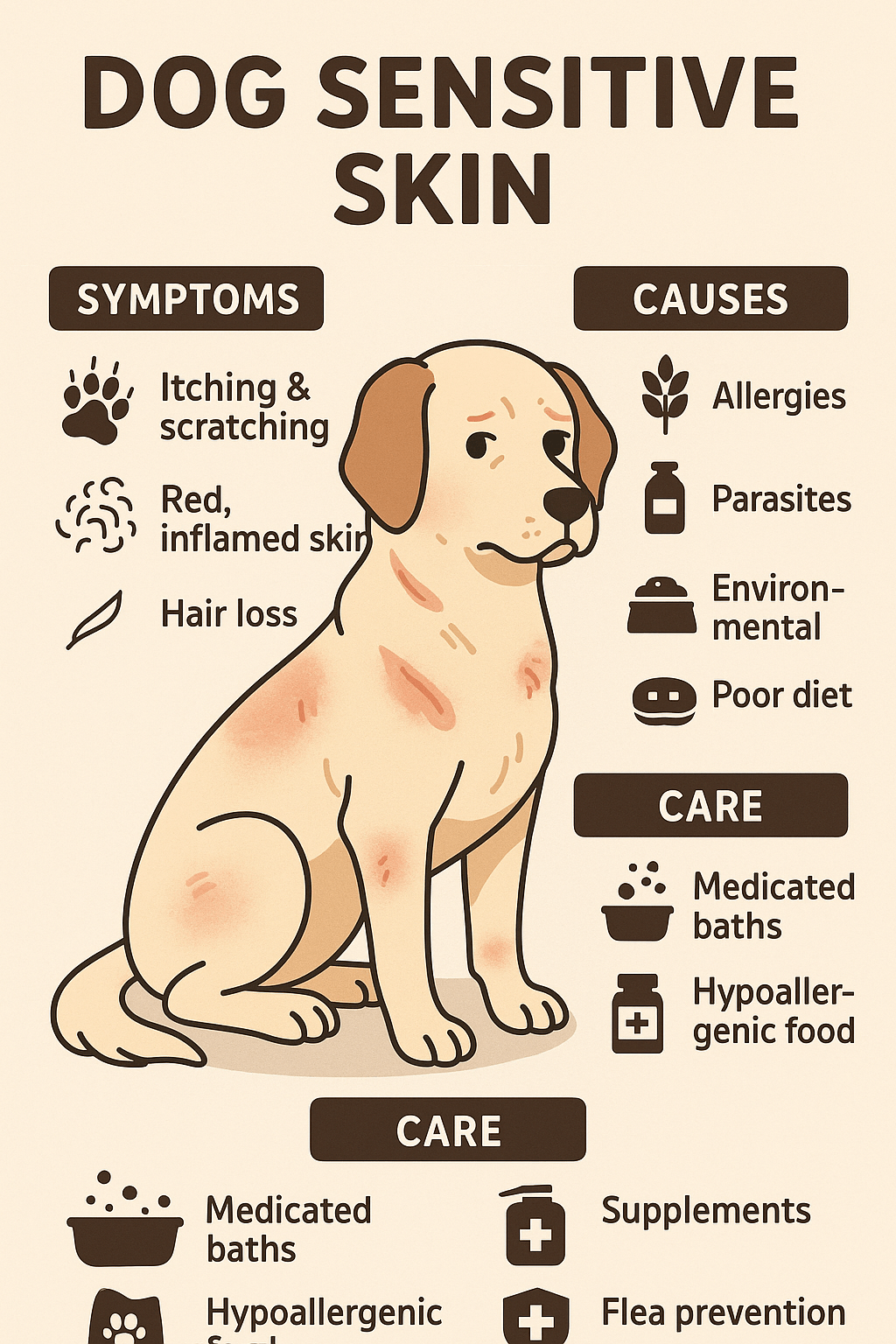Dachshund Allergies: Understanding and Managing Your Dog’s Health
Dachshunds are beloved for their playful personalities, loyal nature, and unique long-bodied appearance. However, like all dogs, they can suffer from allergies that affect their comfort and well-being. From skin irritations to food sensitivities, dachshund allergies can manifest in various ways, leaving owners puzzled about the cause and treatment. Whether your dachshund is scratching incessantly, licking their paws, or showing signs of digestive upset, understanding the triggers and solutions is key to keeping them healthy and happy. In this blog post, we’ll explore everything you need to know about dachshund allergies, including common causes, symptoms, and expert tips for managing them effectively.
Common Causes of Dachshund Allergies
Allergies in dachshunds can stem from a variety of sources, ranging from environmental factors to dietary issues. Identifying the root cause is the first step toward alleviating your dog’s discomfort.
Environmental Allergens:
Pollen, dust mites, mold spores, and grass can trigger allergic reactions in sensitive dachshunds. These allergens are often seasonal and harder to avoid.Food Allergies:
Certain ingredients like beef, chicken, dairy, wheat, or soy may cause adverse reactions in some dachshunds, leading to gastrointestinal or skin issues.Flea Allergy Dermatitis:
Even a single flea bite can cause intense itching and skin irritation in dachshunds with flea allergies, making flea control essential.Contact Allergies:
Materials such as certain fabrics, cleaning products, or shampoos can irritate your dachshund’s skin upon contact.Household Chemicals:
Air fresheners, scented candles, and harsh cleaning agents may exacerbate respiratory or skin allergies in sensitive dogs.
Understanding these potential triggers allows you to take proactive steps in minimizing your dachshund’s exposure to allergens.
Signs and Symptoms of Allergies in Dachshunds
Recognizing the symptoms of allergies is crucial for early intervention and effective management. Here are some common signs that your dachshund may be suffering from allergies.
Excessive Scratching or Licking:
Persistent scratching, especially around the ears, belly, or paws, is a telltale sign of an allergic reaction.Red or Inflamed Skin:
Allergies often cause irritation, leading to redness, swelling, or hot spots on the skin.Chronic Ear Infections:
Recurrent ear infections or excessive head shaking may indicate an underlying allergy issue.Hair Loss or Bald Patches:
Constant licking or scratching can result in hair loss, revealing irritated or raw skin underneath.Gastrointestinal Upset:
Food allergies may cause vomiting, diarrhea, or frequent flatulence, signaling a dietary sensitivity.
If you notice any of these symptoms, it’s important to consult your veterinarian to determine the underlying cause and appropriate treatment.
Check this guide 👉Havanese Dachshund Mix: Best 7 Expert Tips!
Check this guide 👉Shiba Inu Dachshund Mix: Best 7 Expert Tips!
Check this guide 👉Dachshund Cavalier Mix: Best 7 Expert Tips!
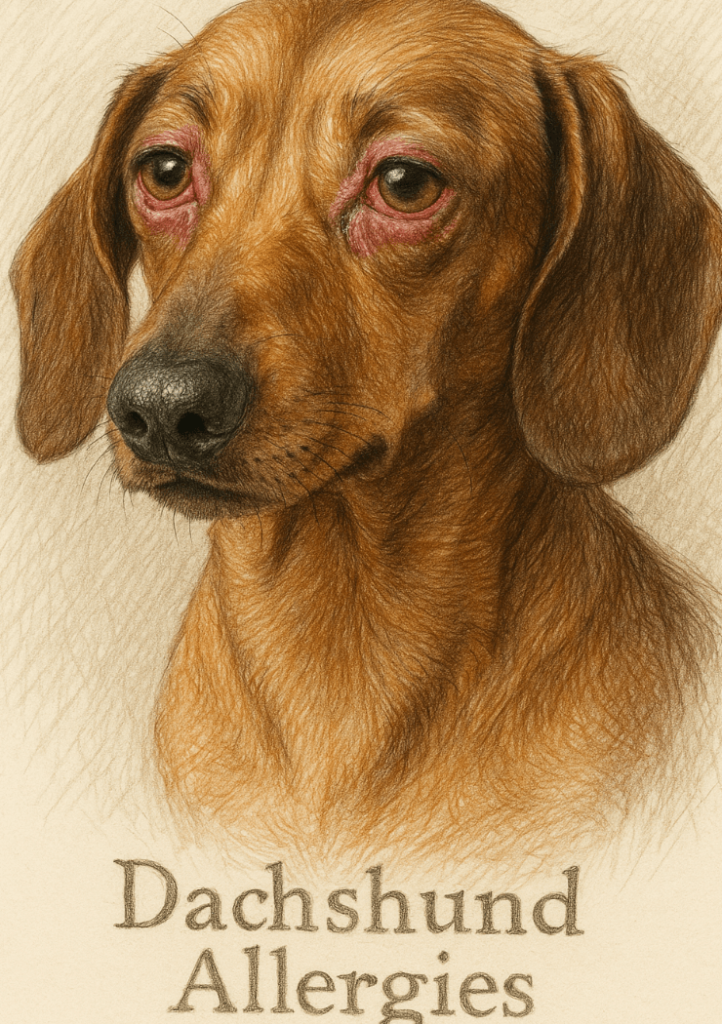
Common Allergy Triggers | Effective Management Strategies |
|---|---|
Pollen and dust mites | Use air purifiers and wash bedding weekly |
Flea bites | Maintain regular flea prevention routines |
Certain foods (beef, dairy, wheat) | Conduct an elimination diet under vet guidance |
Harsh cleaning chemicals | Switch to pet-safe, fragrance-free cleaners |
Contact with irritating materials | Choose hypoallergenic bedding and toys |
Managing Dachshund Allergies Through Diet
Diet plays a significant role in managing allergies, especially for dachshunds with food sensitivities. Adjusting their nutrition can help alleviate symptoms and improve their overall health.
Identify Problematic Ingredients:
Work with your vet to identify specific foods that may be causing allergic reactions through an elimination diet.Switch to Hypoallergenic Food:
Hypoallergenic diets formulated with novel proteins (e.g., duck, venison) and limited ingredients can reduce allergic responses.Avoid Common Allergens:
Steer clear of foods containing beef, chicken, wheat, or dairy if your dachshund has shown sensitivities to these ingredients.Incorporate Omega-3 Fatty Acids:
Supplements like fish oil can improve skin health and reduce inflammation caused by allergies.Provide Fresh Water Daily:
Clean, fresh water supports digestion and helps flush out toxins that may worsen allergy symptoms.
A thoughtful approach to your dachshund’s diet can make a significant difference in managing their allergies.
Preventive Measures for Dachshund Allergies
Preventing allergies before they become problematic is always better than treating symptoms after they arise. These proactive measures can help minimize your dachshund’s exposure to allergens.
Regular Grooming:
Bathe your dachshund with hypoallergenic shampoo to remove allergens trapped in their coat.Flea Control:
Use veterinarian-recommended flea prevention products year-round to protect against flea allergy dermatitis.Clean Living Spaces:
Vacuum frequently and wash your dachshund’s bedding regularly to reduce dust mites and other allergens.Limit Outdoor Exposure During Peak Seasons:
Keep your dachshund indoors during high pollen seasons to minimize exposure to environmental allergens.Monitor for Early Signs:
Pay attention to subtle changes in behavior or skin condition, as early detection can prevent worsening symptoms.
Taking preventive steps ensures your dachshund stays comfortable and allergy-free throughout the year.
Common Misconceptions About Dachshund Allergies
There are several misconceptions about dachshund allergies that can lead to confusion among pet owners. Clarifying these myths helps set realistic expectations for managing your dog’s health.
Allergies Only Affect the Skin:
While skin issues are common, allergies can also cause respiratory problems and digestive upset in dachshunds.Allergies Are Always Seasonal:
Some allergies, like food sensitivities, can occur year-round rather than being tied to specific seasons.Over-the-Counter Treatments Always Work:
Not all remedies are effective or safe; professional veterinary advice is essential for proper treatment.Bathing Too Often Helps:
Excessive bathing can strip the skin of natural oils, worsening irritation instead of alleviating it.Puppies Don’t Develop Allergies:
While less common, puppies can exhibit allergy symptoms early in life, requiring prompt attention.
Dispelling these myths ensures a better understanding of how to care for your dachshund’s allergies.
Home Remedies for Mild Dachshund Allergies
For mild cases of dachshund allergies, home remedies can provide relief without the need for prescription medications. These natural approaches are gentle yet effective when used appropriately.
Coconut Oil:
Applying coconut oil to irritated skin can moisturize and reduce inflammation caused by allergies.Oatmeal Baths:
Soaking your dachshund in an oatmeal bath soothes itchy skin and provides temporary relief.Apple Cider Vinegar Rinse:
Diluted apple cider vinegar sprayed on the coat can repel fleas and soothe minor skin irritations.Probiotics:
Adding probiotics to your dachshund’s diet supports gut health and strengthens their immune system.Herbal Teas:
Cooling compresses made with chamomile or green tea can calm inflamed skin and reduce redness.
While helpful, these remedies should complement—not replace—professional veterinary care for severe cases.
Seasonal Allergies in Dachshunds: What to Expect
Seasonal allergies are particularly common in dachshunds, often triggered by environmental factors like pollen or mold. Understanding what to expect during peak seasons helps you prepare and respond effectively.
Spring and Summer Allergies:
High pollen counts during warmer months can cause intense itching and sneezing in sensitive dachshunds.Fall Allergies:
Mold spores and ragweed are prevalent in autumn, leading to flare-ups in affected dogs.Winter Allergies:
Indoor allergens like dust mites and mold thrive in colder months, making winter a challenging time for some dachshunds.Behavioral Changes:
Seasonal allergies may cause increased scratching, chewing, or paw licking as your dachshund tries to relieve discomfort.Preventive Steps:
Keeping windows closed, using air purifiers, and wiping your dog’s paws after walks can minimize exposure to seasonal allergens.
By anticipating seasonal challenges, you can keep your dachshund comfortable and symptom-free year-round.
Frequently Asked Questions About Dachshund Allergies
Can dachshunds outgrow allergies?
Some dachshunds may outgrow certain allergies, but most require ongoing management to control symptoms.
How can I tell if my dachshund has food allergies?
Look for symptoms like vomiting, diarrhea, or persistent skin issues, and consult your vet for an elimination diet trial.
Are over-the-counter allergy medications safe for dachshunds?
Always consult your vet before giving any medication, as dosage and safety vary by individual dog.
What is the best shampoo for dachshunds with allergies?
Hypoallergenic, oatmeal-based shampoos are gentle on sensitive skin and help soothe irritation.
Can stress worsen my dachshund’s allergies?
Yes, stress can weaken the immune system and exacerbate allergic reactions, so maintaining a calm environment is beneficial.
Keeping Your Dachshund Happy and Healthy Despite Allergies
While dachshund allergies can be challenging, they don’t have to diminish your dog’s quality of life. By identifying triggers, implementing preventive measures, and working closely with your veterinarian, you can manage symptoms effectively and ensure your dachshund remains comfortable. Remember, every dog is unique, so patience and observation are key to finding the right solutions for your furry friend. With love, care, and a proactive approach, your dachshund can enjoy a happy, itch-free life filled with wagging tails and joyful moments.
Rimadyl for Dogs: Best 7 Expert Tips! Discover expert advice on using Rimadyl safely, managing pain, and improving your dog’s mobility with trusted veterinary insights.
Can Dogs Have Tylenol for Pain? Best 7 Expert Tips! Discover the risks, safe alternatives, and expert advice on managing your dog’s pain effectively while avoiding harmful medications.
Understanding Hemophilia in Dogs: Best 7 Expert Tips! Discover expert advice on managing hemophilia, recognizing symptoms, and ensuring your dog’s well-being with practical care strategies.
Understanding Dog Sensitive Skin: Best 7 Expert Tips! Discover expert advice on managing dog sensitive skin, relieving irritation, and improving your pup’s comfort with practical solutions.

